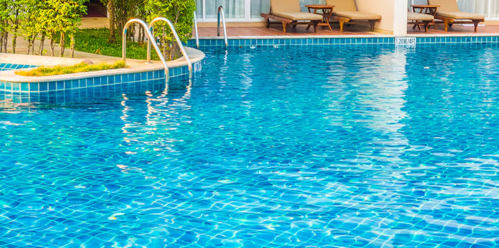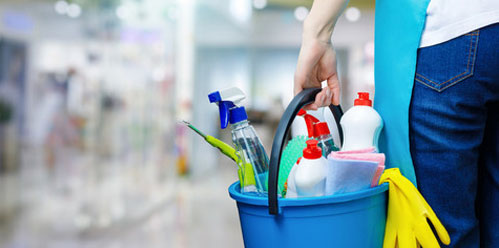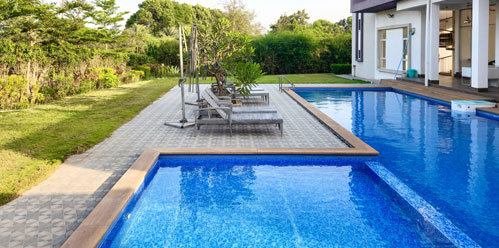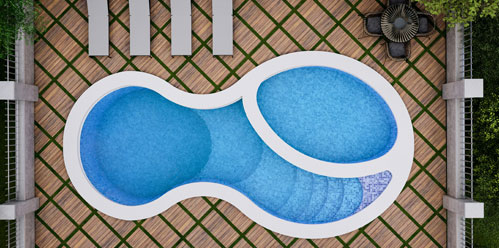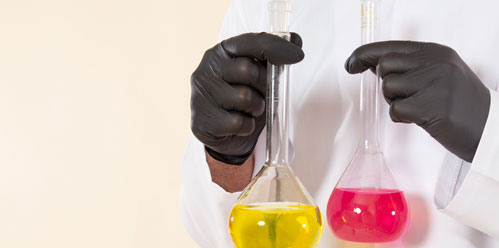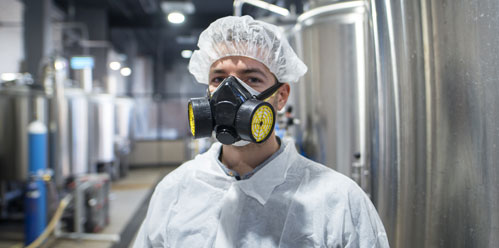The Importance of Chlorine in Swimming Pools
Most people probably wouldn't want to swim in a pool full of bacteria and germs. But without modern chemistry we might have to swim in such pools.
Swimming in untreated water, even for a short time, can expose a person to various skin infections such as diarrhea, swimmer's ear, and athlete's foot. Modern chlorine pools provide a safe and healthy swimming experience.
Chemistry helps disinfect chlorinated pool water, fighting off germs, so swimmers are not exposed to harmful germ levels that can cause illness. We know how to safely use pool disinfectant chemicals.
What is Chlorine?
Chlorine is an element represented by the symbol "Cl" on the periodic table and is most commonly found in nature as salt. At room temperature, it appears as a yellow-green gas with a sharp odor. Chlorine is known as a powerful disinfectant and is widely used in areas such as water purification, cleaning swimming pools, and disinfecting drinking water. Its ability to effectively eliminate bacteria, viruses, and other harmful microorganisms makes it indispensable in water hygiene.
What Experts Say About Pool Chemicals and Chlorine Safety:
- The Centers for Disease Control and Prevention (CDC) states that chlorine is added to water to kill germs. According to the CDC, chlorine and pH are the first line of defense against germs that can make swimmers sick.
- According to Health Canada, whether you choose chemical products or electrical devices to clean your pool or spa, you must maintain a certain level of disinfectant to prevent the growth of disease-causing microorganisms.
- Belgian scientists also support the use of chlorine in pool disinfection, stating that chlorine is currently the best disinfectant available and that "there is no evidence that alternatives to chlorine provide an appropriate solution for swimming pool disinfection." (Belgian High Health Council)
Why is Chlorine Added to Swimming Pools?
Chlorine is added to water to kill germs. When chlorine is in the pool, it forms a weak acid called hypochlorous acid, which kills bacteria such as Salmonella and E. coli, as well as germs that cause diarrhea and swimmer's ear. Chlorine in pools prevents odors and ensures healthy growth.
How is Chlorine Produced and Where Does it Come From?
The chlorine in pools is a naturally occurring chemical element and is a fundamental building block. Chlorine is produced from common salt (sodium chloride) by passing an electric current through a saltwater solution in a process called electrolysis.
How is Pool Water Chlorinated?
Chlorine for pools is available in various formats and amounts optimized for each unique size and type. Pools are disinfected with various chlorine-based products, including chlorine gas, sodium hypochlorite (liquid bleach), calcium hypochlorite, lithium hypochlorite, and chlorinated isocyanurates. When any of these forms come into contact with water, the active disinfectant agent hypochlorous acid (HOCl) is released.
Saltwater vs. Chlorinated Pools: How are Saltwater Pools Different from Chlorinated Pools?
Both types of pools actually use chlorine. Saltwater pools generate chlorine on-site from the atmosphere. Other chlorinated pools use chlorine tablets or sticks to disinfect the water.
Why Do Pools Sometimes Smell Like Chemicals or Chlorine?
Healthy pools do not smell of chemicals. While pool water often smells like chlorine, a well-maintained pool should not have a strong odor. The smell of pool water is not from chlorine itself but from chloramines, which are chemical compounds that accumulate when the pool water is not properly treated, creating what is known as "pool chlorine smell."
Chloramines result from a combination of two elements: (1) the chlorine disinfectants used to sanitize the pool, and (2) sweat, oils, and other substances brought into the pool by swimmers. Chloramines can be eliminated from pools through a process known as "shock treatment" or "super chlorination," which involves adding extra chlorine to the pool to break down the organic compounds containing ammonia that react with chlorine to form chloramines.
Does Chlorine Irritate the Eyes?
Swimmers may worry that if their eyes are red or irritated after swimming, it means there is "too much chlorine in the pool." However, when pool water is irritating, it usually indicates that there is not enough chlorine in the water! The real cause is often chloramines breaking down.
To keep a pool, hot tub, or spa safe, the water should be tested daily, especially during high usage periods. Chlorine levels in pools minimize eye redness and irritation. The video below provides more information on how to maintain healthy pools.
Pool Chlorine Prices
Pool chlorine prices vary based on the product's form (tablet, granule, liquid) and concentration. Prices may also differ based on the brand and the quantity purchased. Generally, bulk purchases tend to offer better prices. The quality and effectiveness of chlorine are important for pool health, so it’s essential to choose the product that best meets your needs rather than opting for the cheapest option. When comparing prices, consider the product's disinfection power and durability.
Can Drinking Pool Water Make You Sick?
Accidentally swallowing small amounts of pool water is not an issue, but excessive ingestion should be avoided. Drinking pool water or accidentally ingesting it can expose you to bacteria and viruses such as E. coli, norovirus, and even Giardia, Cryptosporidium, and Shigella.
Consuming excessive amounts of chlorinated water can lead to a range of health problems, including stomach cramps, burning in the mouth, swelling or pain in the throat, upset stomach, vomiting, and diarrhea.
How to Kill Lice with Chlorine?
The CDC reports that lice can survive in chlorinated water and that chlorine does not kill them. It is not practical to eliminate lice using swimming pools, as lice can cling to human hair when submerged in water. However, lice can spread through sharing other items, such as towels, combs, brushes, hats, and hairbands that have been in contact with an infected person.





